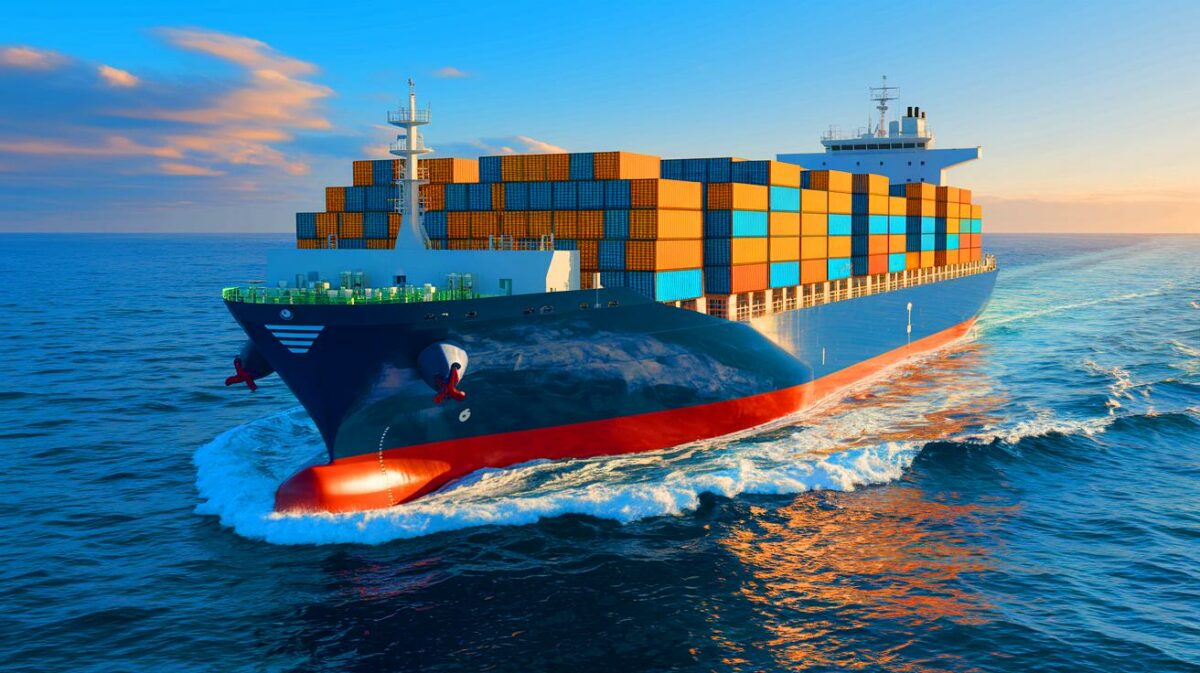| IN A NUTSHELL |
|
In an era where environmental concerns are at the forefront of global discourse, industries are increasingly turning to innovative solutions to mitigate their ecological impact. One such groundbreaking initiative involves the use of recycled cooking oil to fuel a cargo ship, marking a significant milestone in the quest for sustainable maritime transport. This novel approach, championed by Brazilian energy giant Petrobras and mining leader Vale, signals a promising shift towards reducing emissions in the shipping industry, a sector notorious for its carbon footprint.
The Power of Recycled Cooking Oil
The recent collaboration between Petrobras and Vale has resulted in the development of a marine fuel blend that incorporates used cooking oil. Known as Very Low Sulfur (VLS) B24, this fuel is a strategic mix of 76 percent fossil fuel oil and 24 percent UCOME, a biodiesel derived from processed used cooking oil. This innovative blend was prepared by Petrobras Singapore, ensuring sustainability and traceability through its ISCC EU certification.
On April 22, in the bustling port of Singapore, the bulk carrier Luise Oldendorff was refueled with this eco-friendly fuel as part of a pilot test conducted in collaboration with Oldendorff Carriers. This endeavor not only showcases the potential of alternative fuels but also underscores the commitment of these industry giants to decarbonize maritime operations. By leveraging recycled resources, Petrobras and Vale are paving the way for a cleaner, more sustainable future for global shipping.
Decarbonization in Maritime Transport
The adoption of bio-bunker fuels represents a significant milestone in the ongoing alliance between Petrobras and Vale. This partnership is rooted in a shared goal of offering cost-effective solutions that also drive the reduction of carbon emissions. As Petrobras president Magda Chambriard asserts, the company is committed to producing increasingly sustainable fuels and enhancing its logistics to deliver greener products. This collaboration is emblematic of Petrobras’ broader decarbonization strategy.
Vale, under the leadership of CEO Gustavo Pimenta, is equally dedicated to reducing its carbon footprint. The company is actively pursuing multi-fuel solutions for both new and existing vessels, aiming to minimize greenhouse gas emissions in maritime transport. Through this partnership, Vale and Petrobras are not only addressing immediate environmental concerns but also setting a precedent for the industry at large.
Sailing Towards Sustainability
Vale’s efforts to test alternative fuels on its chartered vessels align with the International Maritime Organization’s emission reduction goals. The company aims to achieve a 33 percent reduction in its Scope 1 and 2 emissions by 2030, with a further commitment to reducing Scope 3 emissions by 15 percent by 2035. These targets reflect Vale’s comprehensive approach to sustainability, encompassing the entire value chain, including maritime transport.
For Petrobras, the commercialization of marine fuels with renewable content is a key component of its strategy to support the transition to low-carbon energy. The company’s 2025-2029 Business Plan allocates USD 16.3 billion toward energy transition initiatives, emphasizing low-carbon energy projects and operational decarbonization. This substantial investment marks a 42 percent increase in CAPEX dedicated to sustainability, highlighting Petrobras’ proactive role in fostering greener energy solutions.
The Broader Implications
The successful refueling of the Luise Oldendorff with VLS B24 marks a pivotal moment in the maritime industry. By utilizing a blend of fossil fuels and recycled cooking oil, this initiative demonstrates the feasibility of integrating alternative energy sources into mainstream operations. It also reinforces the importance of industrial partnerships in driving sustainable innovation.
As the world grapples with the challenges of climate change, initiatives like these offer a glimpse into a more sustainable future. The collaboration between Petrobras and Vale not only sets a benchmark for the shipping industry but also serves as a catalyst for broader environmental change. This project exemplifies how traditional industries can adapt and thrive in a rapidly evolving energy landscape.
With the success of this pilot test, the question remains: how will other industries adapt to the growing demand for sustainable practices, and what role will alternative fuels play in shaping the future of global transport?
Did you like it? 4.6/5 (25)










Wow, cooking oil? What’s next, powering planes with french fry grease? 😂
This is a great step towards sustainability! Kudos to Petrobras and Vale. 🌿
How does the cost of this biofuel compare to traditional marine fuels?
Intriguing approach, but can this be scaled up for larger fleets?
Is it safe for marine life? 🤔
Finally, a delicious way to save the planet! 🍟